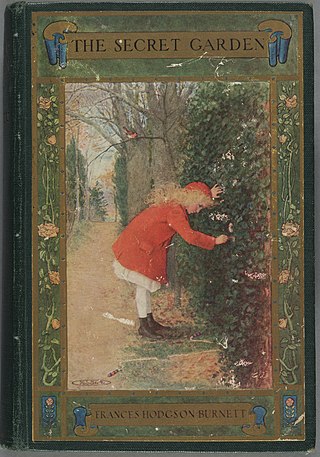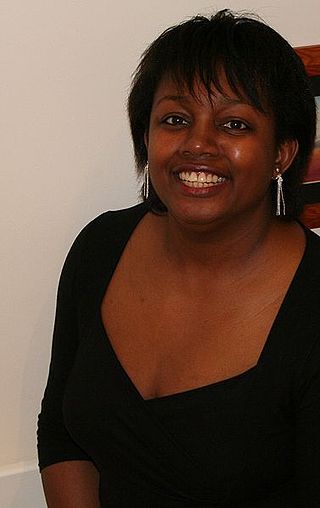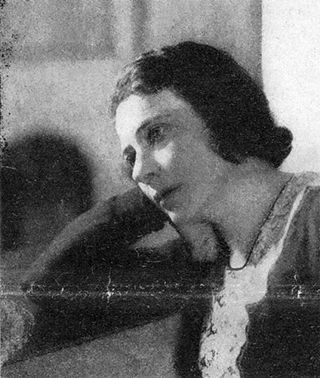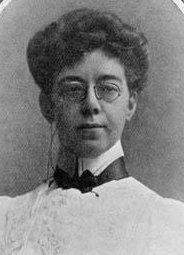Related Research Articles

Sir James Matthew Barrie, 1st Baronet, was a Scottish novelist and playwright, best remembered as the creator of Peter Pan. He was born and educated in Scotland and then moved to London, where he wrote several successful novels and plays. There he met the Llewelyn Davies boys, who inspired him to write about a baby boy who has magical adventures in Kensington Gardens, then to write Peter Pan, or The Boy Who Wouldn't Grow Up, a 1904 West End "fairy play" about an ageless boy and an ordinary girl named Wendy who have adventures in the fantasy setting of Neverland.

Edith Nesbit was an English writer and poet, who published her books for children as E. Nesbit. She wrote or collaborated on more than 60 such books. She was also a political activist and co-founder of the Fabian Society, a socialist organisation later affiliated to the Labour Party.

The Secret Garden is a children's novel by Frances Hodgson Burnett first published in book form in 1911, after serialisation in The American Magazine. Set in England, it is seen as a classic of English children's literature. The American edition was published by the Frederick A. Stokes Company with illustrations by M. L. Kirk, and the British edition by Heinemann with illustrations by Charles Heath Robinson.

Adam Bede was the first novel by English author George Eliot, pen name of Mary Ann Evans, first published in 1859. It was published pseudonymously, even though Evans was a well-published and highly respected scholar of her time. The novel has remained in print ever since and is regularly used in university studies of 19th-century English literature. Eliot described the novel as "a country story full of the breath of cows and scent of hay".

Malorie Blackman is a British writer who held the position of Children's Laureate from 2013 to 2015. She primarily writes literature and television drama for children and young adults. She has used science fiction to explore social and ethical issues, for example, her Noughts and Crosses series uses the setting of a fictional alternative Britain to explore racism. Blackman has been the recipient of many honours for her work, including the 2022 PEN Pinter Prize.

Chief Daniel Olorunfẹmi Fágúnwà MBE, popularly known as D. O. Fágúnwà, was a Nigerian author of Yorùbá heritage who pioneered the Yorùbá language novel.

Sarah Gertrude Millin, née Liebson, was a South African author.
Barbara Euphan Todd was an English writer widely remembered for her ten books for children about a scarecrow called Worzel Gummidge. These were adapted for radio and television. The title story was chosen as the first in the publisher's new series, Puffin Books.

Peter Pan in Kensington Gardens is a novel by J. M. Barrie, illustrated by Arthur Rackham, and published by Hodder & Stoughton in late November or early December 1906; it is one of four major literary works by Barrie featuring the widely known literary character he created, Peter Pan. Most of the text originally appeared as chapters 13–18 of Barrie's 1902 novel The Little White Bird.

Peter Pan; or, the Boy Who Wouldn't Grow Up, often known simply as Peter Pan, is a work by J. M. Barrie, in the form of a 1904 play and a 1911 novel titled Peter and Wendy. Both versions tell the story of Peter Pan, a mischievous little boy who can fly, and has many adventures on the island of Neverland that is inhabited by mermaids, fairies, Native Americans, and pirates. The Peter Pan stories also involve the characters Wendy Darling and her two brothers John and Michael, Peter's fairy Tinker Bell, the Lost Boys, and the pirate Captain Hook. The play and novel were inspired by Barrie's friendship with the Llewelyn Davies family.

We Couldn't Leave Dinah is a children's novel by Mary Treadgold, first published by Jonathan Cape in 1941 with illustrations by Stuart Tresilian. It is a contemporary adventure story set on a fictional island in the English Channel during World War II and eventually during a German occupation. Treadgold won the 1941 Carnegie Medal recognising the year's outstanding children's book.

Mary Angela Dickens was an English novelist and journalist of the late Victorian and Edwardian eras, and the oldest grandchild of the novelist Charles Dickens. She died on the 136th anniversary of her grandfather's birth.

Fryniwyd Tennyson Jesse Harwood was an English journalist, author and criminologist.
Irma Chilton, also known as I. M. Chilton, was a Welsh children's writer in the English and Welsh languages. She was a recipient of the Tir na n-Og Award presented by the Welsh Books Council, and of eisteddfod prizes.
Nora Lavrin, néeFry, was an English engraver, book illustrator and painter. She illustrated twenty editions of children's books.

Evangel Allena Champlin Best, better known by her pen name Erick Berry, was an American author, illustrator and editor.
Locksmith Animation is a British-American independent computer animation feature film studio owned by Sister Group. Headquartered in London, England with an office in Los Angeles, California, Locksmith is best known for producing and developing independent computer-animated feature films.
Pauline Cartwright is a writer of novels, picture books, stories and poems for children. She was awarded the Choysa Bursary in 1991 and the University of Otago College of Education / Creative New Zealand Children's Writer in Residence Fellowship in 2003. She lives in Alexandra, New Zealand.
Averil Constance Demuth (1906–2000) was an English writer of children's stories, several of which have a fantasy element.
Beverley Frances Dunlop was a New Zealand children's author and short story writer. She published numerous short stories in journals and magazines and four novels for children.
References
- 1 2 Young Wings. 1954. Retrieved 11 January 2023.
- 1 2 Gifford, D. (2020). History of Scottish Women's Writing. Edinburgh University Press. p. 369. ISBN 978-0-7486-7266-0 . Retrieved 11 January 2023.
- ↑ "An Edinburgh Chronicle. "Mary Forsyth"". Edinburgh Evening News. 11 July 1939. Retrieved 19 January 2023.
Mary Forsyth" is the pen-name of Miss Agnes Dunlop, of Ayr, who is also well known under the pseudonym, "Elisabeth Kyle
- ↑ Kyle, Elisabeth (2 December 1933). "The Ways of Women". Nottingham Evening Post. Retrieved 19 January 2023.
- ↑ "Princess of Orange". BookRags. Retrieved 20 November 2019.
- 1 2 3 "Elisabeth Kyle (1901–1982)". Lesser-known British, Irish, & American women writers 1910–1960. Furrowed Middlebrow. January 2014. Retrieved 20 November 2019.
- 1 2 "Elisabeth Kyle". The Genome Project. BBC. Retrieved 11 January 2023.
- ↑ "A Book at Bedtime". The Television & Radio Database. Retrieved 11 January 2023.
- ↑ "Broadcasting News. Neil Munro's "The Daft Days" - October 11". Leven Advertiser & Wemyss Gazette. 28 September 1937. Retrieved 19 January 2023.
Neil Munro's famous novel, The Daft Days. which has been adapted for the microphone by Elisabeth Kyle, a well-known Scottish journalist
- ↑ "Some Broadcasts to Come". Berwickshire News and General Advertiser. 5 December 1939. Retrieved 19 January 2023.
- ↑ "Broadcasting. Slavs and their Country". Berwick Advertiser. 17 April 1941. Retrieved 19 January 2023.
Listeners to Children's Hour will remember the many plays which she has written for young listeners, but her broadcast on April 26, will mark her first personal appearance at the microphone
- ↑ "Echoes from Town: New Authoress". Nottingham Evening Post. 6 March 1934. Retrieved 19 January 2023.
- ↑ "A London Letter for Women". Liverpool Daily Post. 12 March 1934. Retrieved 19 January 2023.
- ↑ Henderson, J.M.; McDermid, V. (2021). Josephine Tey: A Life. Sandstone Press Limited. p. 455. ISBN 978-1-914518-08-9 . Retrieved 11 January 2023.
- 1 2 Edwards, O.D. (2007). British Children's Fiction in the Second World War. Societies at War. Edinburgh University Press. p. 637. ISBN 978-0-7486-2872-8 . Retrieved 11 January 2023.
- ↑ Slovak Review. Slovak Akademic Press. 1992. ISSN 1335-0544 . Retrieved 11 January 2023.
- ↑ The Living Church. Morehouse-Gorham Company. 1955. p. 17-PA26. Retrieved 11 January 2023.